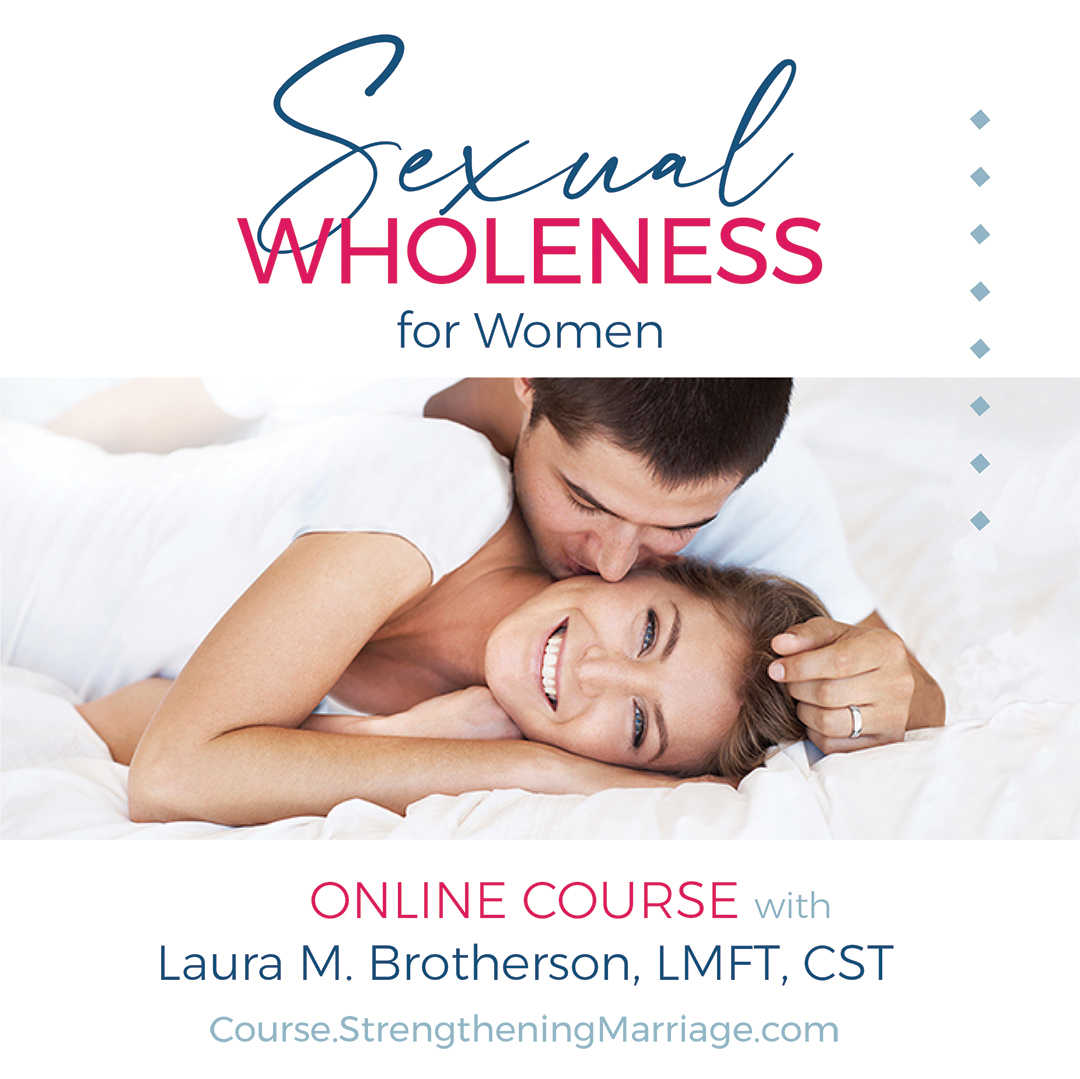Exquisite efforts at self-mastery coupled with a willingness to protect rather than destroy make Edward Cullen an easy object of admiration. I’m inspired by what his character traits could add to our lives, and how it could strengthen our marriages.
~~~~~~~~~~~~~~~
Edward Cullen of Stephenie Meyer’s Twilight fame has captured many hearts and minds. I’m not a big fiction buff myself, especially when it comes to things like vampires. But there is definitely something profound for young and old, male and female alike to learn from Edward Cullen.
As a marriage educator, I’m all about strengthening marriages, so after reading a recent article titled, “What Girls Want: An Edward” it got me thinking about how important some of Edward’s character traits are, not only for our youth going through the potentially treacherous teen years, but for those of us who have moved on into marriage as well.
Admiration of Edward Cullen
There’s no shortage of swooning young women who think Edward is all that, but I wonder if the adoration isn’t less about his mysterious eyes and swoopy hair and more about what he is willing to do (and be) for his beloved Bella. Edward Cullen epitomizes self-restraint and mastery over self.
Edward’s nature (as a vampire) is to eat Bella for dinner. But instead he has incredulously taken on the task of her guardian and protector. It’s like a lion falling in love with a lamb. Thankfully for Bella, Edward comes from a family who has not only taught him to control his deadly appetite, but helps him do so as well.
Though I have not read the Twilight books, I did go see the movie when I began writing this article. What has me so enthralled with Edward’s character is his sacrifice and self-discipline, especially because it goes so against his natural wiring.
When Bella asked Edward why he has chosen the path that he has, he responded that he doesn’t want to be a monster — apparently regardless of the formidable cost to him.
Curiously, he acknowledges finding strength in the self-restraint, even though he is never fully satisfied.
I can only imagine how Bella or any young woman would see such a personal sacrifice being made on her behalf. If that isn’t breathtakingly attractive, then I don’t know what is.
It’s little surprise to me that when Edward asks Bella, “Do you trust me?” there is no hesitation. How could you not willingly give your whole life and anything else he wanted, knowing full well he would never take or do anything that would hurt you?
With a level of character and commitment seldom seen, Edward reminds himself, and Bella as well, that he can never lose control with her, as it would be simply deadly.
Parental Engagement
To me, the most poignant part of the movie was when Edward, with his father at his side, had to take on the impossible task of saving Bella’s life by sucking the venom out of her without taking too much of her blood. I felt cautiously comforted knowing the father was there, attentive to the inordinate challenge that Edward faced.
Lucky for Edward (and Bella), Edward’s father was on hand with his experience, strength, and wisdom at a critical juncture. He was there to implore Edward to resist once Bella’s life had been spared.
My heart stopped beating as the immensity of Edward’s predicament and the father’s words penetrated my heart, “Enough! Remember who you are. Stop, Edward! Find the will to stop!”
What an incredible force for good would exist if our young men would take on the task of mastering their appetites and passions, and to stand strong in their rightful place as guardians of virtue and moral protectors.
How much easier the task would be if parents would actively engage themselves in helping their sons develop such self-mastery.
Parents and youth are not alone in such a tremendous undertaking. This kind of self-mastery, unselfishness, and trustworthiness are possible only with a conscious and constant partnership with God.
Society likes to tell us that boys will be boys, and men cannot help themselves, while assigning women the responsibility of protecting virtue. That is not God’s plan.
Particularly in the case of youth, young women often do not yet fully grasp the power of the sex drive, nor their role in its cultivation in young men. They need the experience and wisdom of their parents to safely guide them.
Parents play a vital role not only in helping young men master their God-given desires, but also in helping young women not to detract from that effort or make it needlessly more difficult.
Self-Mastery and The Marital Fire
The characteristics of self-discipline and selflessness profoundly affect marriage, and more specifically the intimate relationship. One of the interesting dynamics of the sexual relationship involves the ironic dilemma of the wife’s primary challenge being to awaken and cultivate her sexual desire, while the husband’s pressing challenge is generally to bridle his passion.
The bridling of his passion is no small task, with no small consequence. His self-mastery and attentive focus on his wife’s needs are vital ingredients in the percolating potential for intimate bliss for both himself and his wife.
For a woman to look into the eyes of the one she loves and see not only a delicious hunger, but also the power of his restraint is a grand gift, indeed. A man’s self-mastery is not only incredibly attractive but also incredibly sexy.
Lovemaking might well be likened to a fire. In the presence of fire, a woman must first feel safe and assured that someone is in control of the fire, before she can let go and surrender to it — a necessary step for her fulfillment.
If the man does not have the will nor the discipline to master his desires, she will instinctively stay on duty keeping watch over the fire while he ventures off on his own flight of ecstasy.
Because a man’s greatest bliss is intimately connected to his wife experiencing her bliss, his self-mastery represents no small sideshow in the symphony of sexual love.
Hidden Treasures in Self-Mastery
In God’s divine design I believe men are chosen as the principal keepers of virtue, but only if they have mastered their own desires. I can’t help but wonder if within a man’s self-mastery there lie hidden treasures and exultant joys hitherto unknown.
I don’t hesitate to suggest that a man’s mastery over his sexual desire is likely the single greatest source of his strength, especially if he turns to God in his efforts to put off the natural man.
I think God deliberately made man’s sex drive as He did, not only for the purpose of bringing a man and a woman together to marry and create life, but also as man’s greatest tutor, beckoning him to master this power rather than allowing it to become a monster that masters him.
Putting off the Natural Man
God’s directive to Abraham to sacrifice his son Isaac may be likened to that which God asks of us. Though difficult and heartrending, with faith, trust and obedience Abraham would nevertheless obey.
Many men struggle mightily not only with sex-related addictions, but also with the inevitable differing desire of their wives. These challenges provide unparalleled opportunities for men to come unto Christ and be perfected in Him, and to deny themselves of all ungodliness (see Moroni 10:32).
I imagine we all struggle with some thorn of the flesh obscuring our divine identity like a mortal overlay. Part of our job here on Earth is to overcome our mortality and put off the natural man.
The natural man (or woman) is an enemy to God and will be forever unless we yield ourselves to the enticings of the Holy Spirit, and become a saint through the atonement of Christ (see Mosiah 3:19).
If men will deny themselves of all their ungodliness, and love God (more than their favorite self-indulgence) with all their might, mind and strength, then God’s grace will be sufficient for them.
God gives us weaknesses and mortal challenges to invite us to repent and humble ourselves before Him, and to believe in the power of Christ to sustain and even heal us. With humility and faith in Christ it is enough for God to make our weak things become strengths (see Ether 12:27). Through God’s grace, man (and woman) may be perfected in Him (see Moroni 10:32).
We may truly feel inflicted by our mortal weaknesses. But God, nevertheless, asks that we become as a little child, obedient and submissive to Him, meek, humble, patient, full of love, willing to submit to all things, which the Lord seeth fit to inflict upon us (see Mosiah 3:19).
Satan, too, sees the potential for great power if we stay in our “natural man” selves. He skillfully takes advantage of man’s makeup to ensnare him with pornography, infidelity and other addictions, keeping man from the very thing that can give the greatest joy and peace.
He’s pretty good at snaring women as well! He seeks to enslave us all and bind us down to endless misery. But if we seek out God as our source of strength and sustaining, our weaknesses can truly become our strengths.
Trust as the Foundation in Marriage
Trust is at the core of a strong marriage. Trust comes from self-mastery. Self-mastery at any point in our lives provides protection for the future. Self-mastery secures the trust between a husband and wife, protecting both from perilous influences.
One can only imagine the heartbreaking struggles that come to those who must grapple with the devastating effects of pornography, infidelity or other addictions. The soul of the marriage is shattered. Trust is destroyed, leaving questionable hope that it can ever be restored.
When trust has been broken, the painful process of rebuilding trust is very difficult, but essential …and possible. The relationship can be restored to a place of peace, and with concerted effort and divine intervention, God can even make the marriage stronger than it was before.
Yes, there is much we can learn from the character of Edward Cullen.
Exquisite efforts at self-mastery coupled with a willingness to protect rather than destroy make him an easy object of admiration. But it’s not really about him for me. I’m inspired by what his character traits could add to our lives, and how it could strengthen our marriages.
I challenge each of us to consider how self-mastery might bless our lives. I especially challenge men everywhere, young and not so young, to consider their role as guardians of virtue and keepers of the fire.
Reprinted from Meridian Magazine.


























I find it continually bothersome as a “nice guy” to see women idolizing Edward Cullen, he’s an abusive cretin, a pedophile (despite being 17 when he died, he has been alive over a century, if that’s not pedophilia, what is), a stalker (showing up unannounced in someone else’s room to stare at them while they sleep may seem “romantic” to some, most would call it stalking and resort to either pepper spray or a baseball bat, followed up with a call to the police).
I saw an interesting breakdown of the Twilight books from a feminist perspective, and it made a number of good points (many about how poorly written the book is with nonexistent characterization), but the ones I took away from it dealt with the abusiveness of the Swan/Cullen relationship, from the second entry dealing with how to write like Stephenie Meyers: “Personally, I recommend using jealousy, lack of intimacy, sexual coercion, broken promises, and controlling behavior because those are all quite easy to justify; all the hero must do is claim that he acts out of his desire to protect the heroine from danger because of his overwhelming love for her. Additionally, if there is another possible romantic interest for the heroine outside of the hero, isolating the heroine from him is a particularly effective method for the hero to use. One example might be siphoning the gasoline from the heroine’s moped to prevent her from leaving her house.
It is especially important to note that the heroine must not find fault in the hero for his abusive actions, as that would make him much less appealing. Instead, she should excuse his behavior by saying ‘he just loves me’ and then continue to submit to his will.”
Both articles can be found here:
http://psa.blastmagazine.com/2008/08/16/twilight-sucks-and-not-in-a-good-way/
http://psa.blastmagazine.com/2008/08/23/twilight-a-follow-up-and-a-promise/
P.S. I as a well adjusted male, respectful of women, and a member of the LDS church found the books to be terrifying in their portrayal of an “ideal” relationship.
P.P.S. The actor who portrayed Edward in the movie was… not impressed… with Mrs. Meyers, and believes she needs some serious therapy.
I believe there is a danger in the “Twilight” story. The fantasy protrayed of emotional intimacy is akin to the fantasy protrayed of physical/emotional intimacy of pornography.
Pornography is scoffed and scorn, as it should be, for the “unrealistic” and illusionary depiction of being wanted, loved, needed, felt, desired; I believe men seek after pornography as Satan’s counterfeit to experience these divine feelings.
I too believe the “Twilight” series (and other romantic novels) may also be a counterfeit or fantasy for marital intimacy.
I believe husband and wife both want and need physical, emotional, spiritual intimacy, and we all have divine desires to be wanted, needed, desired, appreciated. Sometimes, we seek this love in the wrong places due to our failure to control the “natural man,” negligence by our spouse, and Satan’s temptations.
Husbands and wives both have a responsibility to develop intimacy without the illusion, fantasy, and unrealism of pornography or romance novels; I feel the “Twilight” movie and series may well be detrimental to our marital development.
I believe the movie and series “Twilight” is dangerous. Just as pornography is an illusion, a fantasy, and unrealistic to serve to fulfill needs to be wanted, desired, needed, loved, romance novels and “Twilight” seek to do the same.
Husbands and wifes both need emotional and physical intimacy and sometimes seek for love in the wrong places due to lack of self control of the “natural man,” spousal neglect, and Satan’s temptations. When we seek counterfeit intimacy through “Twilight,” romance novels, or pornography it makes it more difficult to develop genuine intimacy with our spouse.
I hope the point of my article has not been lost on the less-than-ideal portrayals in the Twilight series. My point is simply to highlight the power and necessity of self-mastery for all of us in marriage — even “nice-guys.”
Some of the comments here do wisely suggest that none of us get caught up in fantasy. I recently read an article about the dangers of “chick flicks” when they promote unrealistic expectations. I do think there can be some value to chick flicks (especially for women who are trying to cultivate their sexuality) but I agree that danger lurks as well.
The real answer, in my mind, is to seek God to help us overcome the natural man in all it’s varieties. That kind of self-discipline and self-mastery is what I hope to encourage readers to consider in their own lives.